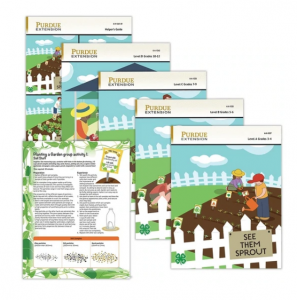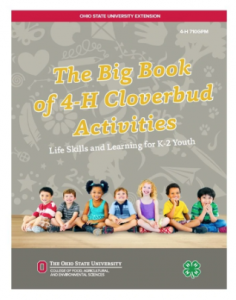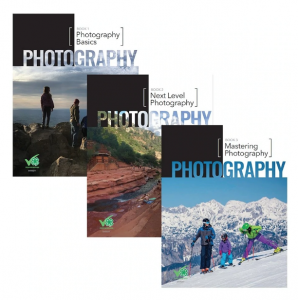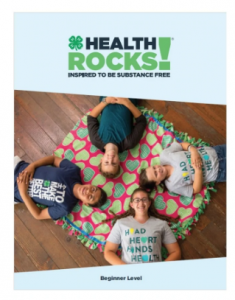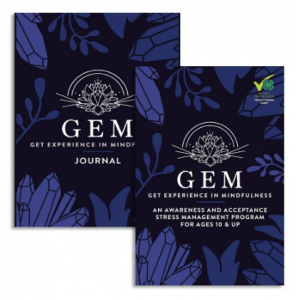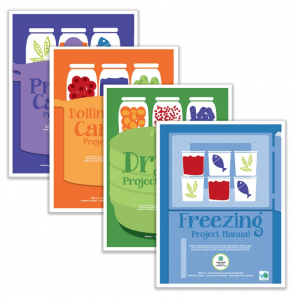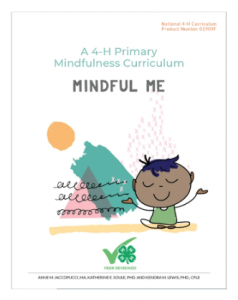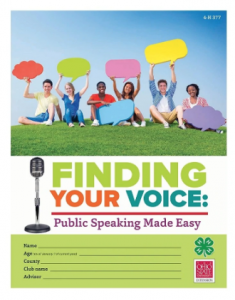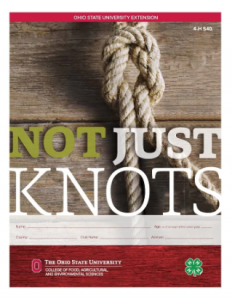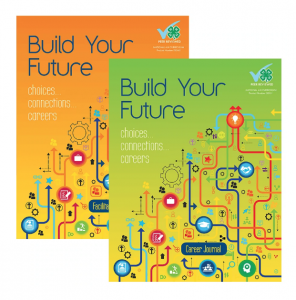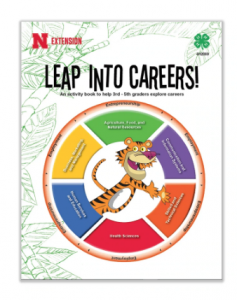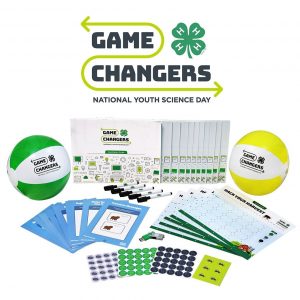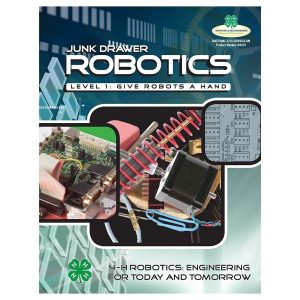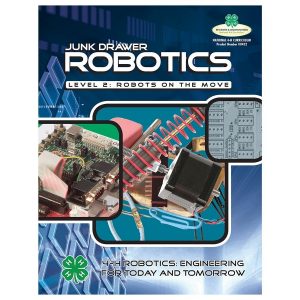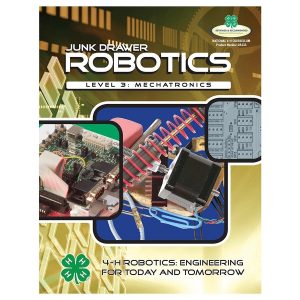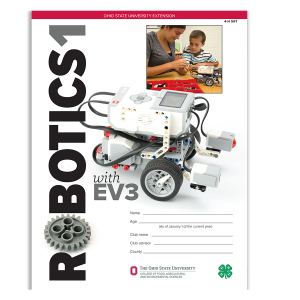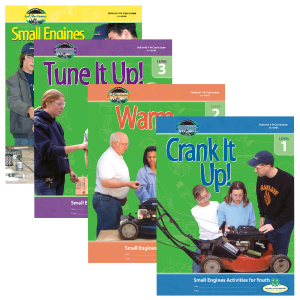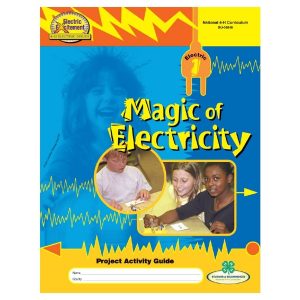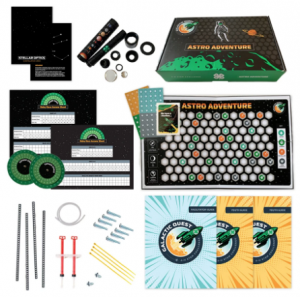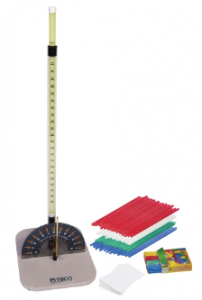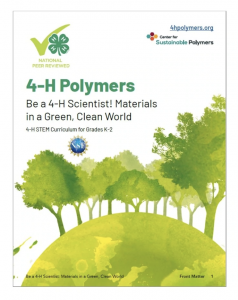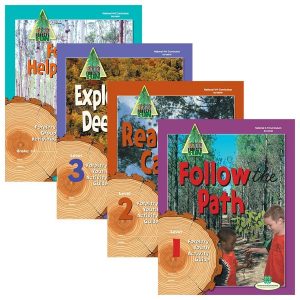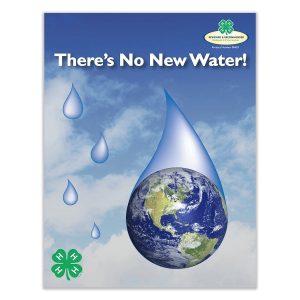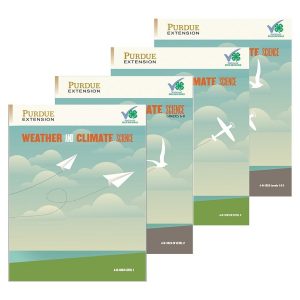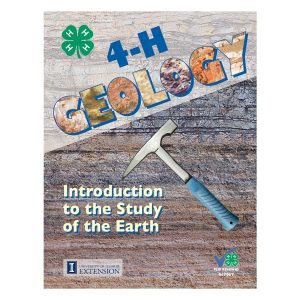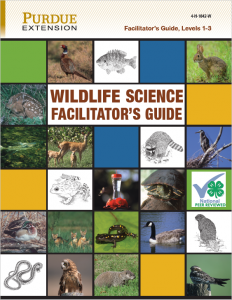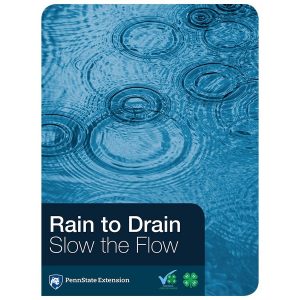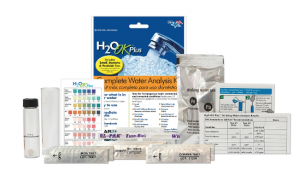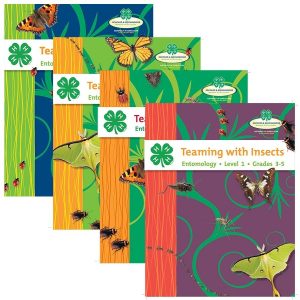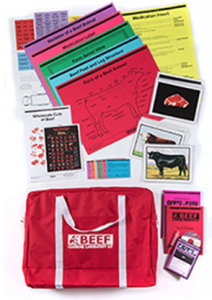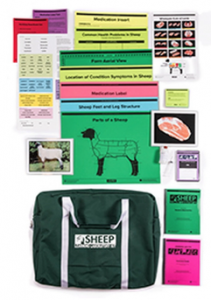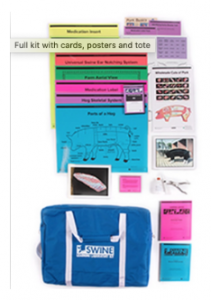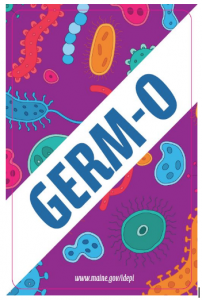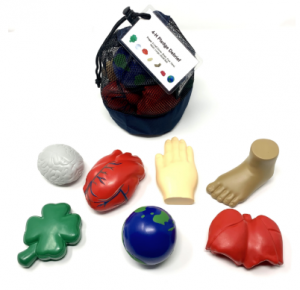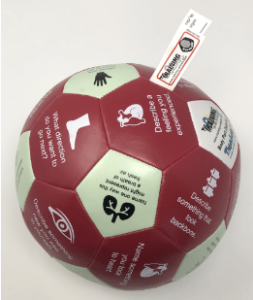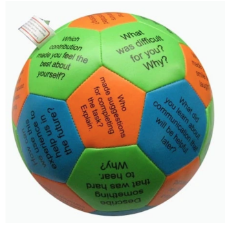4-H Curriculum Lending Library
Welcome to Oxford County’s 4-H Lending Library!
These resources are available for teachers, after-school staff, 4-H volunteers, parents, and staff to borrow. These resources seek to enhance the mission of Cooperative Extension by providing research-based curricula and materials. They incorporate 4-H’s experiential approach to learning by utilizing hands-on, active learning activities to engage youth and foster effective learning and youth development.*
Our Online Curriculum Archive, will also give you immediate access to numerous activities and curricula that are free and downloadable from your device.
Please give staff about a week to assemble materials for you to pick up at the office. Material can be requested via this Google Form.
Lending Library Index by Topic:
- Agriculture
- Creative Arts and Crafts
- Health and Nutrition
- Practical Skills
- Citizenship
- STEM
- Environmental and Outdoor Education
- Animals and Insects
- Debrief Tools
Agriculture
(Click image to enlarge in lightbox view.)
-
2016 Gardening Curriculum: Set of Six
Includes Levels A-D, the Helper’s Guide, and the Exhibit Guide of the 2016 revision of the Gardening curriculum! Curriculum authored by Purdue University. Grades 3-12.
Creative Arts and Crafts
(Click image to enlarge in lightbox view.)
-
The Big Book of 4-H Cloverbud Activities
This revised classic includes updated versions of hundreds of activities for 4-H Cloverbuds (ages 5-8; grades K-2) in the following topics areas: science and technology, communications/expressive arts, healthy lifestyle, environmental/earth science, personal development, citizenship/civic education, consumerism and family science, and plants and animals. Redesigned in an easier-to-manage, spiral-bound book.
-
Photography
The 2019 revision of 4-H’s best-selling Photography curriculum. There are three levels in this Photography series. Activities in each level focus in four main areas: Equipment, Lighting, Composition, and Skill Building. Having access to a camera (phone or DSLR) is essential, as well as deciding how and where to store the photos taken during the project. The books have been updated to reflect changing technology, such as moving from film to digital photography. Cell phones, a common camera for many people, are featured. Other enhancements include digital photo editing as well as online photo storage and sharing. The books are intended for the youth Grades 5-12.
Health and Nutrition
(Click image to enlarge in lightbox view.)
-
Health Rocks
4-H Health Rocks! is a youth development prevention program that utilizes experiential learning methods and youth-adult partnerships. The program and supporting curriculum were designed to foster personal and social skills to better equip adolescents to overcome pressures to participate in substance use.
-
Get Experience in Mindfulness
An Awareness and Acceptance Stress Management Program – GEM: Get Experience in Mindfulness is an Awareness and Acceptance Stress Management Program for ages 10 and up – adults too! This program places an emphasis on stress management taught through practical and interactive mindfulness-based activities to facilitate experiential learning. The program is a research-based and theory-driven program that meets National Health Education Standards. There are five lesson topics: Intentions and Goal Setting, Awareness and Attention, Self-care: Stress Reduction and Relaxation, Communication and Relationships, and Gratitude and Acceptance. Among other things, participants of the program will learn what mindfulness is and how to integrate it into daily life, alignment, and form for over 25 strength and flexibility poses adapted from yoga poses, and relaxation techniques. This guide is designed for the leader and is intended to be used with ages 10 and up.
-
Home Food Preservation
Set includes one each of the Freezing, Drying, Boiling Water Canning, and Pressure Canning Manuals. Each manual includes nutrition information, kitchen basics, the basics of the preservation procedure, and activities for the youth to conduct to learn the techniques. Beginner Skill Level; manuals are written for the youth participant. Written using USDA food-preservation guidelines. Grades 3-12.
-
Mindful Me
A 4-H Primary Mindfulness Curriculum introduces Cloverbud youth members to basic concepts in mindfulness practices. The program promotes mindful practices that lead to improvements in managing one’s own goals, developing a sense of self, time management, stress management, emotional regulation, and mindful eating practices. Specific outcomes from youth participation in the curriculum include short-term (skill development and knowledge gain), mid-term (increased stress management, mindful eating, etc.), and long-term (improved physical, emotional, and social health) benefits. This guide is designed for the leader(s) and is intended to be used with ages 5-8. This curriculum includes ten experiential learning activities which are designed to be delivered weekly by trained teens or adult leaders. Teen training includes an overview of mindfulness, an exploration of neuroscience, an introduction to related educational theories, and best practices for teaching Cloverbud members.
Practical Skills
(Click image to enlarge in lightbox view.)
-
Finding Your Voice: Public Speaking Made Easy
Want to learn a skill you can use for the rest of your life? This project shows members with little or no public speaking experience how to prepare and deliver speeches in front of crowds with confidence. Take a look at how the pros manage this skill, then learn how to handle various speaking situations, deliver different types of speeches, and resolve problems you may experience along the way. Your confidence builds with each activity!
-
Not Just Knots
Learn to make fourteen different simple knots, bends, and hitches. Remember what they say— practice, practice, practice! Then show what you have learned with a capstone project of your choosing. All Ages.
Citizenship
(Click image to enlarge in lightbox view.)
-
Build Your Future: Set of Two
From exploring potential jobs to starting their own business, the “Build Your Future” curriculum helps teens develop skills and knowledge in career exploration. Participants experience a variety of learning methods including developing a business plan, competing in a quiz bowl, creating a portfolio, analyzing case studies, and discussing questions that reflect on their experiences. Nine engaging activities provide a fun structure to help teens learn about their choices, make important connections and plan successful/meaningful careers. Grades 9-12.
-
Leap Into Careers!
The LEAP (Learning Experiences Action Plan) curriculum was developed to help youth understand various career opportunities in several career clusters. The curriculum includes four parts:
- Part A: Youth discover and work with 12 foundational skills, including communication, problem-solving, and critical thinking, that are important to any career.
- Part B: Youth learn about entrepreneurship, as it can apply to every career!
- Part C: Youth delve into the career fields, exploring career opportunities and the skills necessary to be successful in that field. Related 4-H curricula is identified for each of the career fields.
- Part D: Youth design their own Learning Experiences Action Plan (LEAP). Grades 3-5.
STEM
(Click image to enlarge in lightbox view.)
Code Your World — Set of Four Computer Science Activities
Code Your World is a four-part challenge that teaches kids to apply computer science to the world around them through hands-on activities. Developed by Google, 4-H, and West Virginia University Extension Service, it includes a computer-based activity on Google’s CS First platform and three unplugged activities that bring coding to life through games and interaction. Ages 8-14.
-
Game Changers NYSD Kit
Game Changers is a collection of three activities that teach kids computer science (CS) skills through gameplay and puzzles centered around topics they care passionately about. Developed by Google, 4-H, and West Virginia University Extension Service, it includes a computer-based activity on Google’s CS First platform and two unplugged activities. Ages 8-14.
-
Junk Drawer Robotics, Level 1
In Level 1: Give Robots a Hand, youth explore and learn about robot arms. Concepts covered include pneumatics, arm designs, and three-dimensional space. Big ideas include form and function, scientific habits of mind, and engineering design. Grades 4-12. (79 pages).
-
Junk Drawer Robotics, Level 2
In Level 2: Robots on the Move, youth learn about locomotion through exploring, designing, and building mobile robot ROVs and other subsystems. Youth learn about friction, electronic circuits, mobile robots, simple machines, and buoyancy. Grades 4-12. (77 pages).
-
Junk Drawer Robotics, Level 3
In Level 3: Mechatronics, youth will explore sensors and analog and digital systems. The track introduces simple electronic components; youth will build basic circuits to see how the components work. They will investigate basic elements of programming and instructions for robotic computer control. Grades 4-12. (109 pages).
-
LEGO® Robotics1 With EV3
Use the newest LEGO® technology to learn about what a robot is, how to build one, and how to program it. Activities are based on the EV3 Core Set from LEGO®. A computer for running the programming software and Internet access for watching videos are required. Appropriate for all age levels. Watch a webinar all about the curriculum below.
Mars Base Camp 4-H STEM Challenge Educator Kit
The race to land humans on Mars is on! The 2020 4‑H STEM Challenge will explore sending a mission to Mars with the activity, Mars Base Camp. Developed by Google and Virginia Cooperative Extension, Mars Base Camp is a collection of activities that teaches kids ages 8-14 STEM skills like mechanical engineering, physics, computer science, and agriculture.
- Educator Kit: Includes materials for 12 youth to participate in the STEM Challenge at the same time. Kits can be used in spaces where physical distancing and other safety precautions can be followed.
-
Small Engines
- In Level 1: Crank It Up, youth learn about engine parts, engine maintenance, oil grades, spark plugs, cooling systems, and safety labels. Grades 3-12. (40 pages).
- In Level 2: Warm It Up, youth explore internal parts of engines, learn about engine sizes, compression ratios, seasoning their engines, and safety issues. Youth also learn about occupational possibilities and about starting their own business. Grades 3-12. (40 pages).
- In Level 3: Tune It Up, youth tear down and rebuild an engine, use diagnostic tools, research rules and regulations about using small engine machines, and select replacement engines. Grades 3-12. (40 pages).
- The Helper’s Guide includes group activities, helpful hints for each activity in the three youth guides, and additional small engine project meeting ideas. (40 pages).
-
Magic of Electricity
Youth explore why certain things insulate from electricity better than others and the effect that magnetism has various substances. They also build a flashlight, a compass, an electromagnet, and an electric motor. Grades 4-5.
-
Galactic Quest
The 2021 Challenge theme of space exploration takes youth on an out-of-this-world adventure and makes connections to the 4-H pillars—STEM, civic engagement, healthy living, and agriculture. The challenge activities allow youth to develop inquiry, observational, and problem-solving skills while they make discoveries and develop their STEM identities.
Galactic Quest is ideal for youth ages 8 to 14 years to spark an interest in STEM and inspire real-world actions. For families wanting to engage with the activities right away or youth working on their own, the Youth Guide can be used as a Quick Start Guide to the challenge.
-
Straw Rockets
Building and experimenting with these simple rockets is the perfect way to introduce students to rocketry. And they’ll learn a bevy of physics principles in the process!
Looking for standards-based activities to accompany these materials? The Straw Rockets Teacher’s Guide is available for free digital download on the Straw Rockets Teacher’s Guide page (Pitsco Education), or complete and submit the form on the Straw Rockets Teacher’s Guide page (Pitsco Education) to download a free digital copy.
In need of fun activities for elementary-aged students? Check out our Straw Rocket Elementary STEM Activity Guide, available for free digital download on the Straw Rocket Elementary STEM Activity Guide page (Pitsco Education) or complete and submit the form on the Straw Rocket Elementary STEM Activity Guide page (Pitsco Education) to download a free digital copy.
Environmental and Outdoor Education
(Click image to enlarge in lightbox view.)
-
4-H Polymers: Be a Scientist! Materials in a Green, Clean World
Be a 4-H Scientist! Materials in a Green, Clean World is an inquiry-based science curriculum focusing on the following concepts: materials; plastics; the three R’s: Reduce, Re-use, Recycle; and the work of scientists and engineers. The curriculum is designed to build foundational skills of science and engineering: observation, asking questions, sorting and classifying, and communicating. Grades K-2.
-
Forestry Curriculum: Set of Four
In this curriculum youth begin by exploring different types of trees and tree parts, characteristics of different forests. They then move on to take a closer look at the inner-workings of trees, explore forest change, learn about forest health concerns and discover the health benefits trees have on people. The final portion examines and distinguishing different types of trees, looking at forests on a global scale, learning to care for trees, and thinking about how to conserve forests.
-
There’s No New Water
This water conservation and water quality curriculum are grounded in a simple yet powerful concept that water is a finite natural resource whose quantity and quality must be responsibly preserved, protected, used, and reused. The curriculum includes six sequential learning modules and is intended for delivery in out-of-school group settings to be facilitated by an adult.
-
Weather and Climate
The 4-H Weather and Climate Science curriculum are for youth who enjoy learning about science, especially weather and climate. This set includes 1 each of Levels 1-3 and the Facilitator’s Guide. Watch a webinar all about the curriculum below.
-
4-H Geology: Introduction to the Study of the Earth
Geology is the science that studies the earth. It includes the study of materials that make up the earth, the processes that change it, and the history of how it evolved — including life on earth. The study of geology is filled with the mystery and adventure of what happened to former lands and seas, and to plants and animals that lived on or in them millions of years ago. In this project youth will look at the story of the earth to gain a better understanding of the earth and the sources of the minerals youth use each day. Grades 3-12.
4-H The Power of the Wind Materials Kit
Save hours of shopping and purchase a ready-to-use kit! This kit includes all the basic and not-so-common materials for the Power of the Wind curriculum.
Material kits are designed to accommodate up to five groups of students (target group size is 2-5 youth). Grades 6-8.
Materials include, but are not limited to: Multimeters, digital stopwatches, motors, corks, and string. A full list of product contents can be found by searching “4-H The Power of the Wind Materials Kit” on the 4-H.org website.
This item does not include curriculum books.
-
Wildlife Science
Facilitator Guide: The Wildlife Science curriculum is for youth who enjoy learning about wildlife and exploring their habitats. Learn about mammals, birds, fish, and herptiles and the role humans play in conservation and wildlife management. The Facilitator’s Guide is for all three levels. This guide contains activity facilitation and answers as well as a listing of the Next Generation Science Standards by activity.
- 64 pages
Level 1: The Wildlife Science curriculum is for youth who enjoy learning about wildlife and exploring their habitats. Learn about mammals, birds, fish, and herptiles and the role humans play in conservation and wildlife management. Level 1 introduces the wildlife groups: mammals, birds, fish, and herptiles. Youth will learn about the similarities and differences among these groups and then study each one.- 44 pages
- Grades 3-5
Level 2: The Wildlife Science curriculum is for youth who enjoy learning about wildlife and exploring their habitats. Learn about mammals, birds, fish, and herptiles and the role humans play in conservation and wildlife management. In Level 2, youth explore more complex wildlife topics, such as habitats, conservation, and signs of wildlife.- 44 pages
- Grades 6-8
-
Rain to Drain Kit
Developed by Penn State Extension, Rain to Drain – Slow the Flow is a hands-on stormwater education curriculum. This experiment-style series of activities leads youth and adults to a better understanding of the movement of stormwater in natural and developed communities. It’s also a great introduction to green infrastructure and stormwater best management practices.
This curriculum is designed to be used by middle-school-aged youth; it is also easily adaptable to older and younger youth and also for adults. Rain to Drain ties to Pennsylvania Academic Standards in Science and Environment & Ecology; see a full listing here.
Are you interested in learning more about the curriculum, straight from the author and a 4-H educator? Watch a webinar all about the curriculum: Rain to Drain 2018 Meet the Author Webinar (YouTube).
-
H20 Test Kit
Comprehensive home water screening test kit providing an easy, quick, and accurate evaluation of the safety of your family drinking water. Contaminants and chemicals enter drinking water through faulty home plumbing, groundwater leaching, runoff from agricultural processes, flooding and chemical water treatments, but you’ll want to check your water every year according to the EPA. This complete kit is a great way to learn about water safety and rainwater management.
- Includes two tests each for lead, pesticides, total coliform bacteria, total chlorine, total hardness, iron, pH, total alkalinity, copper, iron bacteria, nitrates, nitrites, and hydrogen sulfate
- Easy to use tests with instant results
- Fully illustrated instructions and charts
Animal and Insects
(Click image to enlarge in lightbox view.)
-
Teaming With Insects
Set includes Teaming with Insects Levels 1-3 plus the Facilitator’s Guide. Each level contains the following chapters: Be an Entomologist, Biodiversity, Invasive Species, Integrated Pest Management, and Forensic Entomology.
-
Beef Learning Lab Kit
The Beef Learning Lab Kit is your answer for species-specific, hands-on, durable materials that make learning tactile and fun. It includes materials and suggestions for activities that cover anatomy, breeds, conformation, meat cuts, medicine labels and inserts, and animal handling. Use this and other Learning Lab Kits for teaching and evaluating knowledge of livestock and companion animals. Perfect for classrooms, 4-H clubs, FFA chapters, skillathons, agricultural association activities, and more.
-
Sheep Learning Lab Kit
The Sheep Learning Lab Kit is your answer for species-specific, hands-on, durable materials that make learning tactile and fun. It includes materials and suggestions for activities that cover anatomy, breeds, conformation, meat cuts, medicine labels and inserts, animal handling, and common health problems. Use this and other Learning Lab Kits for teaching and evaluating knowledge of livestock and companion animals. Perfect for classrooms, 4-H clubs, FFA chapters, skillathons, agricultural association activities, and more.
-
Swine Learning Lab Kit
The Swine Learning Lab Kit is your answer for species-specific, hands-on, durable materials that make learning tactile and fun. It includes materials and suggestions for activities that cover anatomy, breeds, identification system, meat cuts, medicine labels and inserts, and animal handling. Use this and other Learning Lab Kits for teaching and evaluating knowledge of livestock and companion animals. Perfect for classrooms, 4-H clubs, FFA chapters, skillathons, agricultural association activities, and more.
-
Zoonotic Disease
Zoonotic diseases are diseases that can be shared between animals and people. More than half of all infections that people get are zoonotic diseases. Maine Center for Disease Control and Prevention’s (Maine CDC) Infectious Disease Epidemiology Program in collaboration with Maine Department of Agriculture, Conservation and Forestry (Maine DACF) designed this curriculum to educate youth involved in agriculture. This program provides education concerning One Health, zoonotic diseases, and biosecurity practices to keep ourselves and our animals healthy.
Debrief Tools
(Click image to enlarge in lightbox view.)
-
4-H Pledge Debrief
This debriefing tool was designed to spark meaningful conversation around each of the unique symbols mentioned in the 4-H Pledge. Set these parts out in front of your group to set the stage for targeted metaphoric processing. Each part can be used independently or as a complete set.
- Brain / Head: What did you learn today? What is something new you thought of? What goal-setting do you need to do?
- Heart: What did you take to heart? What feelings did you experience?
- Hands: How did you lend a hand to others? In what ways did the group support you? Give a hand to someone for a job well done.
- Foot / Health: What are the next steps for you or your club? Describe a good step in the right direction for yourself. What direction do you want to go next?
- Lungs / Health: How was this experience a breath of fresh air? Describe a time where you needed to stop and take a deep breath.
- World: How do your actions affect others? How can you use what you learned to help your club/community/country/world?
- Four Leaf Clover: How has your participation in 4-H impacted you?
-
Body Part Debrief Thumball
The Body Part Debrief Thumball™ was designed to help facilitators, trainers and teachers ask participants thoughtful questions about their experiences. The body-focused metaphors are easy for participants to relate to. This process can help shift some of the responsibility for successful processing from the facilitator to the participants. The questions can be answered in a group setting or used with individuals.
-
Debrief Thumball
The Debriefing Thumball™ was designed to help facilitators ask debriefing questions in a proper sequence that makes sense to participants. It can also shift some of the responsibility for successful processing from the facilitator to the participants. The sequence of 1. What happened, 2. Why is this important, and 3. How can I use this information, not only takes participants through a progression for processing a specific event but also presents an overall lesson on proper processing.
*Information in this website is provided purely for educational purposes. No responsibility is assumed for any problems associated with the use of products or services mentioned in this website. No endorsement of products or companies is intended, nor is criticism of unnamed products or companies implied.
Links to other websites are provided purely for educational purposes. No responsibility is assumed for any content on the linked sites.

